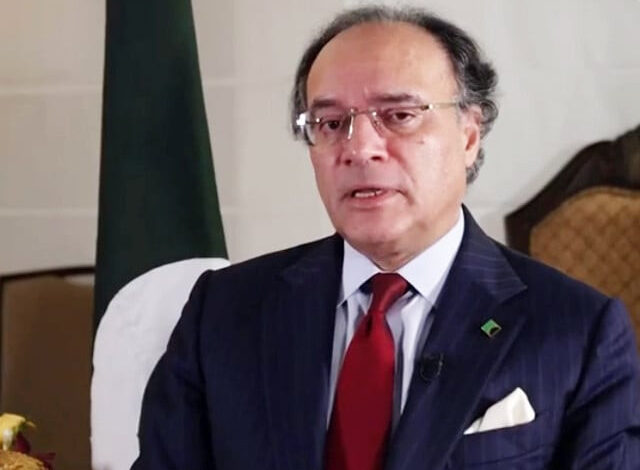
Pakistan’s Economic Policy Built on Outdated Data, Says Finance Minister
Finance Minister Muhammad Aurangzeb strongly criticised the Pakistan Bureau of Statistics (PBS) on Tuesday over its failure to provide up-to-date and credible economic data, accusing the bureau of undermining policy decisions by relying on outdated figures, some over a decade old.
During a high-level meeting at the Q Block, the finance minister expressed deep concern over the lack of timely indicators on critical metrics such as poverty, unemployment, economic growth, and per capita income. According to officials present at the meeting, Aurangzeb tasked his adviser Khurram Schehzad and Chief Economist Dr Imtiaz Ahmad with reviewing how PBS sources and processes data to ensure the accuracy and reliability of national statistics.
PBS officials attributed the delays to political instability, claiming that survey operations were hampered by uncertain conditions. However, meeting participants reportedly rejected this explanation, demanding to know if any formal directive had ever been issued to halt data collection activities — which PBS could not confirm.
Most national surveys — including poverty and labour market assessments — were either outdated or still incomplete. Some fieldwork was carried out in the last fiscal year, but results are not yet available. For example, the most recent Household Integrated Economic Survey (HIES) was conducted in 2018–19, leaving the government without reliable poverty estimates. The latest round of HIES for FY25 has concluded data collection from around 28,000 households, but final results will not be published before December 2025.
This delay is significant, particularly after the World Bank revised its global poverty threshold to $4.20 per day, nearly doubling Pakistan’s poverty rate to 44.7%. In contrast, the government’s official estimate is just 21.3%, based on older data and outdated methodologies.
Unemployment statistics are also out of sync with reality. The last Labour Force Survey was conducted in 2020–21, with fresh results expected later this year. Without real-time figures, policymakers face major blind spots in addressing the employment crisis.
Concerns were also raised over the government’s claim of 2.7% GDP growth in the last fiscal year — a figure disputed by independent economists. One major reason for skepticism is the PBS estimate of 4.8% growth in the livestock sector, even though the last livestock census was conducted in 2005–06. PBS officials explained that they used annual fodder consumption as a proxy to estimate livestock growth, a methodology that lacks precision.
Questions also arose over the sectoral weightings used by PBS, especially the 63.6% assigned to livestock within the agriculture sector, which critics argue skews growth calculations.
Aurangzeb pointed out the lack of an updated per capita income figure. The government’s reported number of $1,824 per person is based on a low population estimate, further calling into question its accuracy.
The situation is similarly concerning for social indicators. The Pakistan Social and Living Standards Measurement (PSLM) Survey, which assesses education, healthcare, housing, IT access, food insecurity, and migration, has not been conducted recently. The next round is planned for 2026 — leaving policymakers without data on crucial development metrics, including the rising trend of economic migration.
In addition, data gaps exist in the agriculture and manufacturing sectors. The last manufacturing census was done in 2015, meaning the GDP is still calculated using outdated industrial structures. The next census is scheduled for 2026–27. Meanwhile, PBS is also in the process of rebasing Pakistan’s national accounts from 2015–16 to more recent data, which will include regional breakdowns for the first time.
On a slightly more positive note, fieldwork for the agriculture census has been completed and tabulation is underway. This will provide updated figures on crop production, livestock, and agricultural machinery — key elements for rural policy planning.
Finance Minister Aurangzeb stressed the urgent need for reliable, timely, and transparent data to make informed policy decisions, promising reforms in how national statistics are collected and reported. The current reliance on outdated surveys, he said, undermines the government’s ability to respond effectively to economic challenges.






